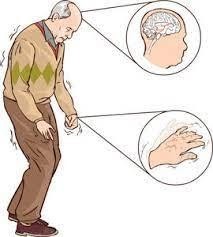The nurse is performing a functional assessment on an older client who lost five pounds (2.27 Kg) of weight since the last visit 12 weeks ago, and who reports a decrease in energy and appetite. Which action should the nurse include during the assessment?
Request to have the client lie as still as possible for the assessment.
Ask the client how often episodes of sundowning are experienced.
Question the client about the frequency of falls in recent months.
Assist the client with clarifying values about end-of-life care
The Correct Answer is C
A) Incorrect - Requesting the client to lie still may be relevant for certain assessments, but it is not specific to the situation described in the question.
B) Incorrect - Inquiring about episodes of sundowning is more relevant for clients with cognitive impairment and is not directly related to the client's weight loss and decreased energy and appetite.
C) Correct - Questioning the client about the frequency of falls is important, as falls can contribute to weight loss, decreased energy, and appetite changes in older adults.
D) Incorrect - Assisting the client with clarifying values about end-of-life care is a valuable nursing intervention but is not the priority in this assessment scenario.
Nursing Test Bank
Naxlex Comprehensive Predictor Exams
Related Questions
Correct Answer is A
Explanation
A) Correct- Clients with Parkinson's disease often experience bradykinesia and impaired mobility. Rising slowly from a seated position is important to prevent falls and maintain stability. Affirming the correct movement strategy promotes the client's safety.
B) Incorrect- Telling the UAP to make the client move more quickly could be unsafe and not appropriate for a client with Parkinson's disease. Rapid movements might lead to balance issues or falls.
C) Incorrect- While demonstrating proper technique might be helpful, it's not the most immediate action the nurse should take. The client's safety and well-being are the priority.
D) Incorrect- Painful movement is not the primary issue here. The client's movement is slow due to Parkinson's disease, and this is expected.

Correct Answer is ["A","C","D"]
Explanation
The PN should palpate the rate and volume of the pulse, measure body weight at the same time daily, and observe the color and amount of urine when assessing a client for signs and symptoms of fluid volume excess. These actions can help detect changes in the cardiovascular, renal, and fluid balance systems that may indicate fluid overloads, such as tachycardia, bounding pulse, weight gain, edema, oliguria, or dark urine.
The other options are not correct because:
B. Checking fingernails for the presence of clubbing is not relevant for assessing fluid volume excess, as clubbing is a sign of chronic hypoxia or lung disease that causes enlargement of the fingertips and nails.
E. Comparing muscle strength of both arms is not relevant for assessing fluid volume excess, as muscle weakness is not a specific sign of fluid overload, but may be caused by various factors such as electrolyte imbalance, nerve damage, or fatigue.
Whether you are a student looking to ace your exams or a practicing nurse seeking to enhance your expertise , our nursing education contents will empower you with the confidence and competence to make a difference in the lives of patients and become a respected leader in the healthcare field.
Visit Naxlex, invest in your future and unlock endless possibilities with our unparalleled nursing education contents today
Report Wrong Answer on the Current Question
Do you disagree with the answer? If yes, what is your expected answer? Explain.
Kindly be descriptive with the issue you are facing.
